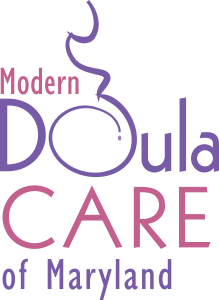As doulas, we often hear how great and supportive our client’s doctor is during their monthly prenatal doctor appointments. As experienced doulas, we have worked with many of the doctors in the area and usually the one our clients are discussing with us.
Sadly, we know that Dr. Wonderful is saying all of the right things to his patient who is preparing for an unmedicated, low intervention birth, but his words do not match hospital policy. Hospital policy will win out in the end. Whether Dr. Wonderful believes that a ruptured water bag is not a valid reason for bedrest during labor means little when he is not in the hospital when your water breaks. The nurse will inform you that the policy is bedrest and monitoring once your water is broken. It’s not bait and switch, but rather, you were asking the right questions to the wrong people.
Your birthplace is the element of your birth plan equation which holds the majority of the power. Hospitals which hold to antiquated policies regarding monitoring, bedrest and clear fluids/ice only during labor can make or break the natural, low intervention birth plan.
How does a woman avoid finding out about these policies too late to remedy the situation? Ask the right questions to the right people. Go on the hospitals labor and delivery tour early in your pregnancy. Call the labor and delivery floor and ask the charge nurse about their policies. Ask other women who have delivered their babies at your birthplace recently about the “must have” items on your birth plan.
Don’t assume because you have a different doctor than your friend that the hospital will change its policy or routine for you or your doctor. Every woman wants to believe they are special or have a special bond with their doctor which will trump hospital policy, but sadly, it usually doesn’t.
A positive, empowered birth is different for every woman and family. Determine which requests you have are the most important. Do you want to labor in a tub? Do you want to eat during labor? Do you want to have your baby room in? Match your birthplace to these desires and look for a doctor or midwife who attends at the best fitting birthplace.
Also, if you want to avoid a surgical birth? Check out your birthplace on consumerreports.org. The reports now include hospitals-section rates. Often, hospital policies can lend themselves to a high surgical birth rate.
As always, doulas are wonderful resources for the scoop on local birthplaces and careproviders. We have attended births in nearly every hospital in the Annapolis, Baltimore and DC area. We are know and are prepared for each birthplace. We can also empower you with the knowledge and support to choose a birthplace which matches your birth vision. So, when in doubt, find a doula and ask away! We are professional birth workers who want to see women achieve an empowered birth. Matching your plan to your birthplace is essential. Let us help!
Modern Doula Care of MD
www.moderndoulacare.com


